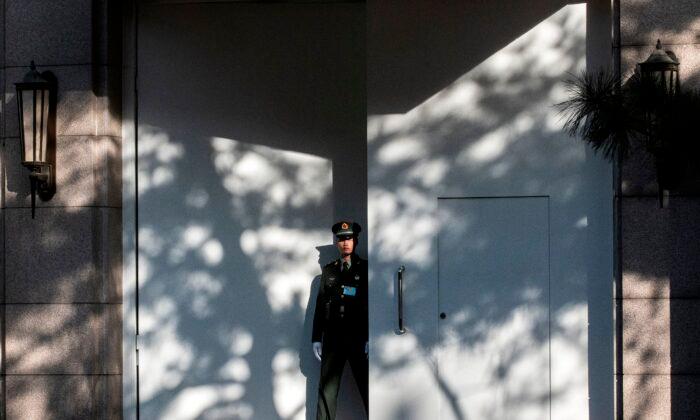Popular outrage in response to the recent case of Christine Fang, a Chinese national who gradually gained political access and power through romantic or sexual relationships with at least two mayors, indicates that many Americans are unaware that this is a common tactic used by the Chinese Communist Party (CCP).
The term for this is “honey trapping,” which may sound like something from a Hollywood spy movie, but is a well-developed espionage strategy used widely by the CCP.
Honey traps are a serious risk with regard to the loss of sensitive or classified information, and particularly its use for blackmail. American politicians in different positions of power, including those in the intelligence community and especially members of Congress, are all prime targets, experts say. The prevalence of such incidents is believed to be underreported due to their sensitive nature.
“The ‘honeypot tactic’ is the oldest trick in the book,” Rep. Jim Banks (R-Ind.) told The Epoch Times.
“Swalwell’s gullibility and recklessness should disqualify him not just from a seat on the House Intelligence Committee, but also from being a member of Congress as well,” he said.
‘They Warned Me’
Honey trapping is just one tool in a broader arsenal used by the CCP to politically influence the United States and gain intelligence, according to Timothy Heath, senior international defense researcher at RAND Corp.“We know it is a tactic that is used by Chinese intelligence agencies,” Heath told The Epoch Times. “To obtain both intelligence and political influence and access to political intelligence. It could be used for a wide range of purposes.”
Heath was previously a senior analyst at the China Strategic Focus Group at U.S. Pacific Command.
“I’ve heard American scholars and others who visited China have been approached by attractive young women and solicited,” he said. “In most cases I’m aware of, these Americans received briefings from intelligence warning them about this.”
CCP agents, for example, might use a honey trap to seduce a U.S. intelligence official or some other official into providing sensitive information, Heath said. The CCP agents would then turn around and blackmail the victim to get more.
More than a decade ago, Ian Clement, the former deputy mayor of London, warned the public about the tactic after he himself fell victim to it.
When Clement traveled to the Beijing Olympics in 2008 as London’s deputy mayor, he had been briefed by Britain’s intelligence service. But he failed to take heed.
Clement said an attractive Chinese woman he met at a party likely spiked his drink. After he'd passed out, she went through his room, collecting information about London’s operations and business dealings.
“While I was in Beijing, I was making planning decisions from my BlackBerry. We’re talking major, major decisions,” he told the outlet. “They wanted to know which businesses I was courting.”
Chinese Hotel Rooms Monitored
Nicholas Eftimiades, a former senior U.S. intelligence official and author of the book “Chinese Intelligence Operations,” told The Epoch Times that Beijing is investing significantly in long-term espionage operations to infiltrate U.S. politics.Eftimiades said the Christine Fang operation was “beautifully handled” in the way it combined both intelligence gathering and political influence. It’s a strategy that “can really be devastating to another country.”
Congress members, who are entitled to access classified information but aren’t required to have security clearances, have been particularly vulnerable to covert influence and spying efforts for decades, Eftimiades said.
Hunter Biden’s Sensitive Material
Hunter Biden, son of Democratic presidential nominee Joe Biden, said on Dec. 9 that he was being investigated by the U.S. Attorney’s office in Delaware over his tax affairs. He didn’t elaborate on the nature of the investigation, but it’s been widely reported that some of his Chinese business dealings and other transactions were under scrutiny by the Justice Department.Giuliani also said the CCP had seen the Hunter Biden material, telling Steve Bannon’s “War Room: Pandemic” podcast that everything Americans have seen, “China’s been looking at for a long time.”
“If the Chinese government doesn’t have these photographs, they’re not really a rival,” Giuliani said.
“I briefed the House and Senate Intelligence committees that China is targeting members of Congress with six times the frequency of Russia and 12 times the frequency of Iran,” he wrote, referring to influence operations in general.
“If I could communicate one thing to the American people from this unique vantage point, it is that the People’s Republic of China poses the greatest threat to America today, and the greatest threat to democracy and freedom worldwide since World War II.”






Friends Read Free